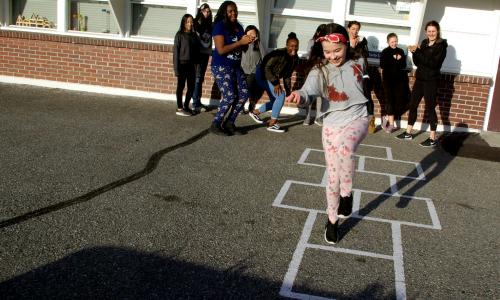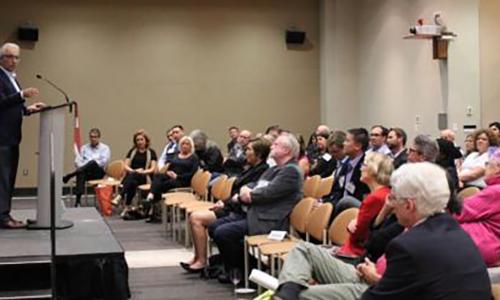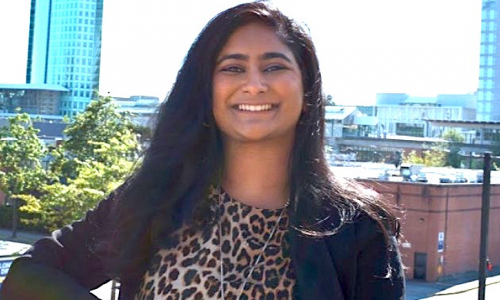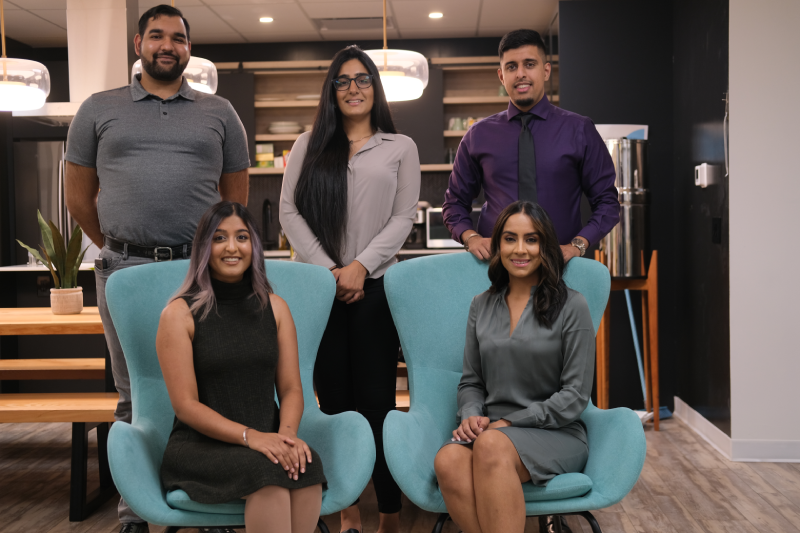
This blog was originally posted on the RADIUS SFU website on October 25th, 2021.
Sah…that means breath in Punjabi, and it is symbolic of the space that we want to create at the South Asian Healing Network (SAH Network) – a space to slow down and just breathe.
Growing up as Punjabi Sikh girls, my friend (Serene) and I (Jshandeep) were aware and bothered by issues we saw in our cultural community, including alcoholism, family dysfunction, and a failure to recognize mental health. It is normalized not to talk about these problems in our culture, something Serene and I could not relate to – we are outspoken and always choose to speak up against injustice. Very recently, our need for community healing led us to begin a search for a support group that would provide space for our healing but also address our cultural need for making sense of the substance use problem in our community. Nothing out there addressed what we needed.
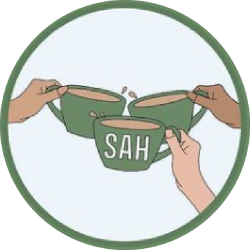
We saw this as an opportunity. Our support for each other has been a lifeline, and others might not have a Serene or Jshandeep to count on. What we were searching for was within us all along: peer support! It was this idea of supporting our community in the ways we support each other that brought SAH alive.
That is why we founded a non-profit peer support organization for South Asian youth like ourselves who are looking for a similar space to gain clarity on their wellness and take charge of their personal growth. We formed the South Asian Healing Network (SAH Network), and we found three other wonderful people to build this project alongside us.
Our other members are Arron, Tyson, and Amy – all young people from the same cultural background who were looking for a space like SAH.
Arron came to SAH with the unique perspective of someone who has witnessed and experienced the Canadian mental health system. He’s seen lots of gaps in services, especially for South Asian men. He’s also experienced the stigma associated with mental health in both Western society and South Asian culture.
Tyson recognized the need for organic connection in personal wellness journeys and took it upon himself to start informal workout groups for young people to both achieve their personal fitness levels, but also build connections. He joined SAH with the drive to build off this idea of peer connection as a vehicle to achieve wellness.
Amy is personally driven to the racial identity struggles in the South Asian community, especially being someone who moved to the Lower Mainland and experienced racism firsthand. She is committed to creating a judgement-free zone for South Asian youth to talk about their problems without having to worry about worsening their racial identity struggle.
For too long, family dysfunction, problematic alcoholism or substance use, and mental health have not been acknowledged in many South Asian communities. In fact, overlooking these issues has been normalized. SAH Network aims to provide vital connections for South Asian youth to a community of peer learning and support. Most importantly, SAH Network aims to normalize healing from intergenerational trauma.
Being in the Punjabi community, we have noticed that many of our community issues stem from intergenerational trauma linked to the treatment of our people in India – namely the 1984 Sikh genocide or even the Indian Farmers Bills and ongoing protests fighting against them. These issues have disproportionately strained and harmed the Punjabi Sikh community. We believe that having a physical community space where healing can happen through making connections and engaging in discourse around these topics would be vital for our community. We also recognize that many minoritized groups from South Asia have similar experiences, and we want to extend our space to these people who might also be seeking healing.
We’d love to hear from anyone who wants to provide guidance, collaboration, or get involved in any capacity with SAH Network. If you are a South Asian youth interested in joining the peer support network – you can join our contact list by going to the link in our Instagram bio (our handle is @sahnetwork). To support us monetarily, you can donate to Solid State Community Industries by going to their website - solidstate.coop. You can specifically mention SAH when you donate if you’d like to contribute to our project. That said, all the Solid State projects are meaningful and need support, so we would be happy if you supported our sister cohorts as well.
Keep up with us by following us on Instagram – again, our handle is @sahnetwork! And don’t be shy to send us an email with any inquiries at info.sahnetwork@gmail.com.









